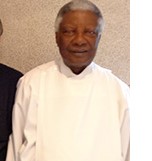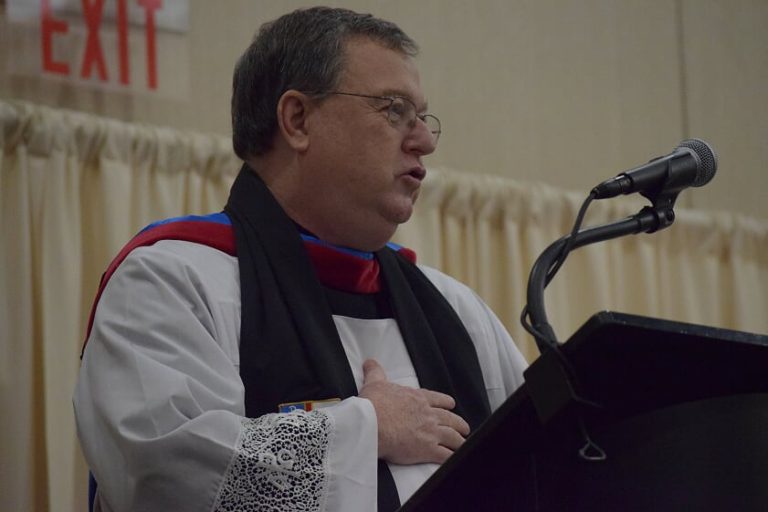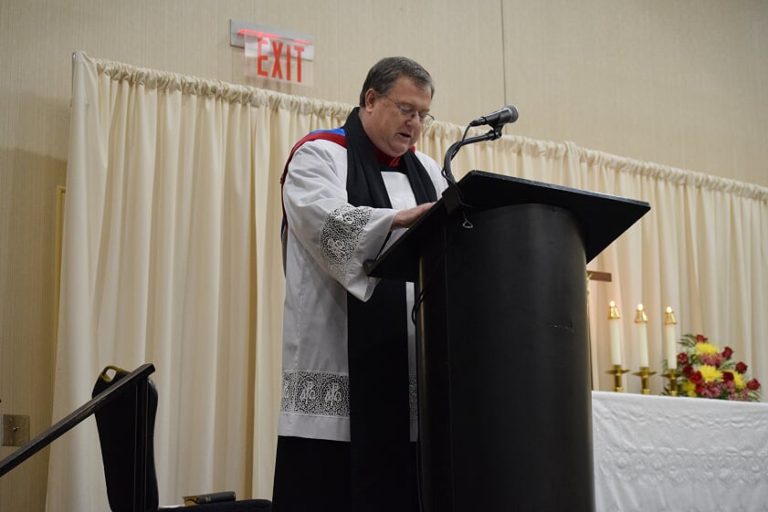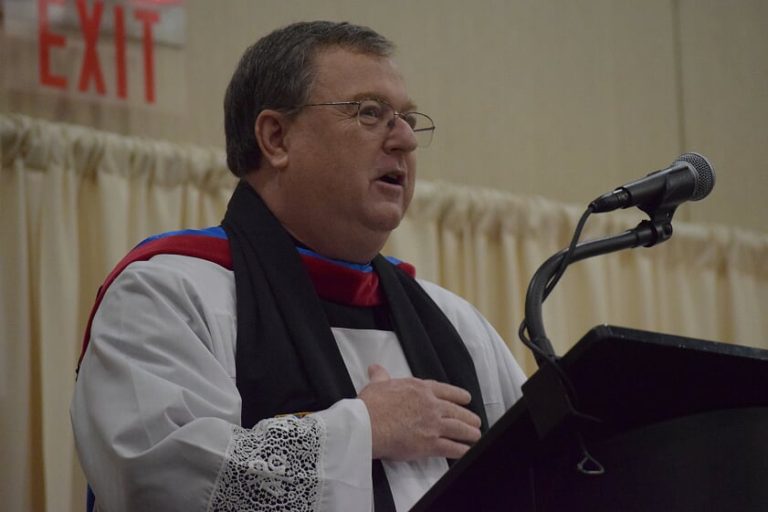SUNDay after All Saints day (Trinity 23) Matt. 5, Fr. George Harding
Today’s passage comes from the beginning of Jesus’ ministry. He has gathered followers, begun his healing ministry and now he sits down with a crowd to share his wisdom. When Jesus speaks, he is not teaching middle class citizens who are frustrated with a few inconveniences of life. He is addressing his fellow Jews who must endure the occupation of Roman troops and a political and economic system that forces them into poverty. These are not people struggling to eek out a decent living. They are straining to survive one more day.
These people live in fear beneath a regime that has no qualms about executing anyone who steps out of line. The Romans view such killings as opportunities to remind those whose land they occupy of what happens to those who resist. Threat of death is the essence of Pax Romana. The Roman Peace was not an ideal in which weapons of war were beaten into agricultural tools and people were free to respectfully disagree with the government. Rather, the Romans equated peace with order and obedience. Roman troops maintained peace by crushing all opposition. Today we wait to see what approach will be implemented in Egypt.
In what is known as the Sermon on the Mount, Jesus speaks to people who are struggling to survive foreign domination and believe that their desperation is a clear sign that God is punishing them. It is to people who live in poverty, who live in fear, who believe that their plight is punishment from the Almighty, that Jesus says, “Blessed are you.”
The words of Jesus must have been so startling that many thought they had misheard him. I imagine someone shouting, “What? Can you repeat that?” Instead of issuing a sharp reprimand; instead of saying, “You are getting what you deserve,” Jesus says, “Blessed are you.”
The Gospel which is our text this morning contains the opening words of Jesus’ sermon known as the Beatitudes. He pronounces nine blessings, which function in two ways. First, they declare God’s favor on people who suffer. And, second, they illustrate those actions that are in harmony with divine desires. They serve as both a word of comfort and a word of challenge.
When Jesus tells the people that they are blessed, he is not saying that they should plaster on a smile and whistle a tune. He is saying that despite their afflictions, they can be confident that God cares deeply for them, and one day their fortunes will be reversed. It is an assurance of comfort. It is a message of encouragement. It is a promise of hope.
The first blessing, according to Matthew’s gospel,is “Blessed are the poor in spirit, for theirs is the kingdom of heaven.” Some of you know that the Beatitudes also appear in Luke’s gospel, but in a slightly different form. According to Matthew, Jesus said, “Blessed are the poor in spirit,” but according to Luke, Jesus said simply, “Blessed are the poor.”
The first Christians saw little difference between Matthew and Luke’s versions. Jesus was undoubtedly speaking to people who were desperately poor and whose spirits were crushed by the tyranny under which they labored.
In saying they were blessed, Jesus was saying, “Do not think you deserve this. Do not think this is what God wants for you. God loves you and you can find comfort in God. Although your current situation is dire, your afflictions will not last forever; God will vindicate you in the future.
Most of us might admit that such a blessing is not totally satisfactory. We want God to eliminate poverty, pain, and injustice. When do we want it? Now! However, in a world where people are free to make choices, we must live with the consequences of good and bad decisions.
Jesus told the crowd they were blessed because their broken spirits would one day be healed. Such a blessing was empowering, because it assured them that God was on their side and opposed to the forces of injustice.
Jesus also said, “Blessed are those who mourn, for they will be comforted.” Jesus was not raising suffering to a virtue. He was refuting the popular notion of his day that those who suffer are being punished by God. Jesus said exactly the opposite. He said that God will comfort you who mourn. Your sorrow is not unnoticed. You are not alone; God is with you.”
Jesus said, “Blessed are the meek, for they will inherit the earth.” Does God want us to shrivel in the face of injustice and faint in the face of evil? Hardly! Jesus addressed people who possessed miniscule power and little control of their destiny. Jesus was saying that although they were victims of a dark force that wielded mighty power, in the end, brute force will not win the day. Although they were currently under the fist of a ruthless power, in God’s kingdom, the roles will be reversed.
The fourth Beatitude is “Blessed are those who hunger and thirst for righteousness, for they will be filled.” Jesus said righteousness not self-righteousness. He was not urging people to believe that they were better than others. He was blessing those who had little reason to remain hopeful, yet they had not given up in despair. They continued to yearn for the world God envisions – a world where people look out for each other, where generosity flows like a river, where virtue succeeds and remains on top, and where justice thrives in every community.
Beatitudes five through nine represent a second set. They move away from circumstances people experience to actions God challenges us to take.
Jesus says, “Blessed are the merciful.” The world knows too much cruelty, intolerance and harshness. Christ counsels us to counter meanness with mercy.
“Blessed are the pure in heart, for they will see God.” If our hearts are pure we gain a clarity of vision that draws us closer to God.
“Blessed are the peacemakers, for they will be called children of God.” Strife and violence are tearing our world apart. The current divide in our own country seems fueled by people (on all sides*) who become so convinced of their own virtue and the vice of their opponents that they have no desire for reconciliation. They only want to impose their way on others. The path of Christ requires the arduous effort of finding common ground, of seeing our opponent’s point of view, of admitting we might be wrong, of trying to convert enemies into friends.
“Blessed are those who are persecuted for righteousness’ sake, for theirs is the kingdom of heaven.” People who take up a just cause discover that the opposition can be fierce. Someone is benefitting from the injustice and they will fight to keep their advantage. The easy path is to say that I am but one small voice with little power to implement change. Jesus blesses those who are persecuted for having the tenacity to stand for what is right.
“Blessed are you when people revile you and persecute you and utter all kinds of evil against you falsely on my account.” If you strive to live as Christ lived, you will be at odds with the values of our culture and may become a target.
Brothers and sisters, to be blessed, is to live with an unquenchable hope that in the long arc of history justice will prevail because love is more powerful than hate and peace more coveted than strife. So blessed are you who live a Christ-like life of compassion because even though it may attract derision and persecution, in the end the ways of God will triumph.AMEN.
- added by Rector




